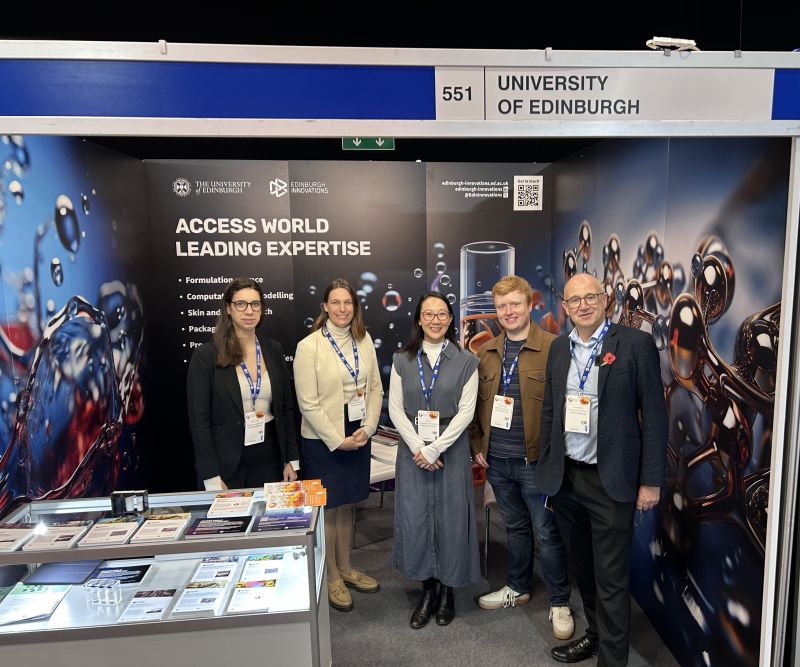How can we help you?
Please get in contact with us to find out more about ECFP and whether we can help you.
ECFP scientists specialise in applying the principles of soft matter physics to formulations and have extensive experience of working with industrial partners to develop solutions for problems relating to formulated products. By generating a more complete understanding of the physical principles underlying formulation behaviour, we create opportunities for innovation through the introduction of new or more efficient processing methods, reductions in product ingredients, or the introduction of greener alternatives. We have a rich variety of experimental, modelling, and simulation academic expertise that we apply to a range of challenges, from formulation development and efficacy testing to identifying green alternatives to existing materials.
For the personal care and cosmetic sector, ECFP can provide increased understanding of product formulation and how it interacts with and affect the skin. We have a wide collection of techniques available with which to do this, including: FTIR Infrared Spectroscopy to show any compositional changes as the product is applied to the surface of the skin, Cryo focussed ion beam (FIB) scanning electron microscopy (SEM) to visualise product structure and reveal elemental information to map out the location of each ingredient, and Contactless Interfacial Rheology to provide a deeper understanding of stabilisation mechanisms in topical formulations which include water and oil phases, as well as an indication of sensory properties.

One of the benefits of applying soft matter principles to personal care and cosmetic products is that their rheological properties can be linked to their sensory features. Dr Andreia Silva has previously worked on an ECFP project investigating the properties of different hand gel formulations. Based on the rheology of these samples (for example, their viscosity and extensional properties), predictions could be made on how they would feel on the hand in terms of smoothness, run off and stickiness. The team formulated hand gel samples using polymers with different structures and brought a demonstration with them to SCS that illustrated the resulting contrasting rheological behaviour of the final products (below). The sample thickened using a microgel has a high enough yield stress to resist flowing unless a large force is applied, for example, shaking a bottle or squeezing a tube. The sample made with a linear polymer still thickens but with a much lower yield stress. The latter may be desirable behaviour for a product like a hand gel or skin serum where consumers would like a formulation that is thick enough to initially remain on their hands without running off, but can then be easily spread on the skin.

The ECFP team at SCS also showcased a new gel-phase formulation chassis technology developed at the University of Edinburgh called DAINTech. This technology provides a route to stable formulations with appealing sensory aspects using established and cost-effective industrial materials, and excitingly, without the use of polymer or microplastic elements. It also offers an alternative potential solution to formulate otherwise challenging ingredients. The platform technology is expected to be broadly applicable to a wide range of industry applications and gives commercial partners the opportunity to implement innovative, environmentally sustainable and commercially valuable formulation products as part of their product development process.
It was energising being at SCS formulate. We had wonderful conversations with a whole range of people from R&D scientists to consultants and graduate and PhD students and it is clear that the sector is rich in product and process development. It was great to present DAINTech while there, it has real potential to be a disruptive technology and reduce our dependence on using petrochemically-derived polymers to thicken formulations.
Please get in contact with us to find out more about ECFP and whether we can help you.
ECFP delivers fundamental product insight enabling improved formulation and processing for a more sustainable future.